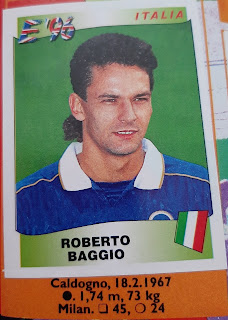172: Gary Speed, Everton, Merlin’s Premier League 97 Official Sticker Collection
Mat Jolin-Beech at the helm for today’s post. There’s not much more to add to that other than it’s important that we all take the time to look out for each other. And let’s not forget Gary Speed. He was really f***ing geeze.
We here at A Sticker’s Worth 500 Words love diving into the trivial, amusing and often ridiculous nature of football, those who played the game, and its cult heroes. This is not going to be one of those pieces. If you want completely nonchalant, frivolous, and light-hearted, this is not one for you. Not to say this is going to be an 100% serious post – but it will touch on some serious points that need to be talked about, much like those on Dean Windass and Gary Charles. The player in question is one Gary Speed.
I’ll be honest, being neither Welsh nor a Leeds United, Everton, Newcastle United, Bolton Wanderers or Sheffield United fan, I can’t say I had a soft spot for him as a player. If anything, he was often that annoying prick who could quite often ruin games as a Manchester United fan. And as a tormented England fan, seeing the great underachieving Wales team he was part of fail to qualify did bring some sort of Schadenfreude.
Not that Speed had a bad career. Indeed, he was top of the Premier League appearance table, until Gareth Barry, Ryan Giggs, Frank Lampard, David James and James Milner all subsequently surpassed him. One of the original breed of Premier League utility players, Speed could play in left midfield, central midfield, and also at left-back. Although to me, he is predominantly a left sided midfielder, often with the captain’s armband. His international career wasn’t bad either. 85 caps and seven goals as part of a generation that included Giggs, Savage, Southall and Hartson.
As a manager, he laid the foundations for where Wales are now: qualifying for major tournaments (something he failed to achieve as a player) – and having some top quality players too – Ramsey and Bale to name two. So all in all, he should have been happy with his lot in life.
But something wasn’t right. After filming Football Focus and watching a battling 10-man Newcastle team thwart Manchester United and being on “fine form” on 26 November 2011, he headed home. The next morning, he was found dead by his wife. No real explanation. No hints. Nothing. The only reasoning is that he was very good at hiding mental health problems and the demons that must have been plaguing him. The only sniff of something being wrong came four days prior where Speed mentioned but dismissed suicide because of the importance of his wife and two kids.
Suicide is a major problem. It is the single biggest killer of men under the age of 45 in the country. I’m not saying talking would have prevented the death of Speed – but it may have. Like everyone, I’ve had darker times in my life. Nothing to this level, nor full depression, but just darker periods. I struggled on keeping quiet and thinking I could deal with it all on my own. I didn’t want to burden others with me. However, the small steps of sharing that with others – anonymously and to those closest to me – has helped hugely. Even little things like saying you’re struggling working from home feel like mental health wins that boost your mood.
Speed has been an icon and inspiration to many for his performances on the pitch and management off it. But his biggest legacy should be encouraging those who are in a dark place to reach out. There is always something to live for. If Speed had reached out, he would have seen Wales reach a major tournament and go all the way to the semi-finals in Euro 2016. Better days are always ahead.





Comments
Post a Comment